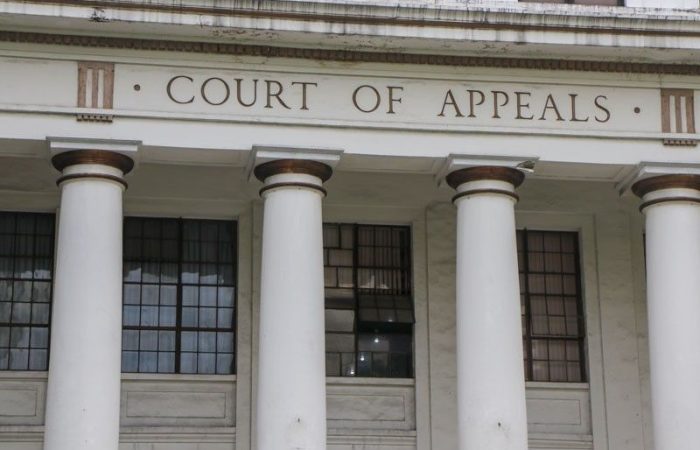By Steven Krieger
Hiring a contractor for a renovation or remodel project is a major decision – some renovation or remodeling projects cost more than a new car. Certainly, you want to interview several contractors and check the referrals to find one you feel comfortable with, but perhaps the most important piece of information to verify is the contractor’s license.
A consumer (or anyone) may verify a contractor’s license by confirming with the Virginia Department of Professional and Occupational Regulation (“DPOR”). Unfortunately, there are individuals and business entities that claim to be licensed contractors, but do not actually hold a valid contractor’s license. Just because the contractor has set-up an LLC or a Corporation (or simply put the LLC, Inc. or Corp. at the end of their name without properly setting up the business entity) to shield the individual owner from liability does not necessarily mean that the contractor has a valid license to perform contracting tasks. A business license is not a contractor’s license.
Possessing a valid contractor’s license is critical because the Virginia Contractor Transaction Recovery Act provides relief to eligible consumers who have “incurred some type of loss through the improper or dishonest conduct of a licensed residential contractor” through the Contractor Transaction Recovery Fund.
Unfortunately, if the contractor is not licensed, the consumer homeowner is not able to seek relief through the Contractor Transaction Recovery Fund. A consumer could certainly file a complaint with DPOR about an unlicensed contractor and “[i]f an investigation indicates the individual or business is not properly licensed, DPOR may take criminal action.” But, criminal action does not necessary put any money back in the consumer homeowner’s pocket.
Previously, I’ve written about the Virginia Consumer Protection Act (“VCPA”), which is a powerful tool for consumers because it allows consumers to recover reasonable attorney’s fees. This is significant because a consumer may not want to engage an attorney to sue the contractor if the attorney’s fees are not recoverable from the contractor.
The VCPA identifies 54 different violations to help protect consumers in Virginia. Number 46 says that the following is unlawful: “[v]iolating the provisions of clause (i) of subsection B of § 54.1-1115.” Virginia Code § 54.1-1115(B) states: “[a]ny person who undertakes work without (i) any valid Virginia contractor’s license or certificate when a license or certificate is required by this chapter.”
So, the question becomes: who is required to possess a license as “required by this chapter,” which is Chapter 11 Contractors from Title 54.1 Professions and Occupations. Virginia Code § 54.1-1100 is the definition section of this chapter and defines a contractor and what license class (A, B, or C) the contractor is required to possess.
A contractor is defined as: “any person, that for a fixed price, commission, fee, or percentage undertakes to bid upon, or accepts, or offers to accept, orders or contracts for performing, managing, or superintending in whole or in part, the construction, removal, repair or improvement of any building or structure permanently annexed to real property owned, controlled, or leased by him or another person or any other improvements to such real property. For purposes of this chapter, “improvement” shall include (i) remediation, cleanup, or containment of premises to remove contaminants or (ii) site work necessary to make certain real property usable for human occupancy according to the guidelines established pursuant to § 32.1-11.7.”
Based on this definition, the term “contractor” is pretty broad, so anyone who provides a consumer homeowner an estimate to perform any remodeling, renovation, or improvement work around your home likely falls into the definition of a contractor and is required to have some type of license – even if the “contractor” plans to sub out all of the work.
However, this is one exception: if the project is under $1,000, the contractor is not required to have a Class C license unless “the total value of all such construction, removal, repair, or improvements undertaken by such person within any 12-month period is less than $150,000.” In other words, your handyman, who charges you $200 to repair a bit of drywall is not required to have a license – unless this handyman is really doing a lot of work during the year that exceeds $150,000.
If the contractor does not have a valid license, then the contractor may have violated § 59.1-200(A)(46) of the VCPA, which allows the consumer homeowner to file a complaint against the unlicensed contractor to recover whatever financial damages were caused by the contractor in addition to reasonable attorney’s fees (and potentially punitive damages if the violation was intentional).
Although, the consumer homeowner may not be able to recover financially through DPOR and the Contractors Recovery Fund from damages sustained by an unlicensed contractor, the VCPA does allow the consumer homeowner to recover from the unlicensed contractor.
If you’re a consumer homeowner struggling with an unlicensed contractor (or even a licensed contractor), please feel free to contact my office for a consultation.




Can I terminate a contract if I discovered that a contractor did not possess a correct license designation that was required for a structural rebuild and applied for a building permit in my name without the express consent? In this case, the contractor possesses HIC, CIC and plumbing license but not an RBC license. My rebuild requires the RBC license because it contains changes (expansion) to the original structure. I have already paid substantial amount (80%) but upon this discovery of the contractor not possessing an adequate license, I want to terminate the contract and finish the work with a properly licensed entity. Can I also seek (and how) the return of the payments the already-completed work since the contractual basis governing the entire rebuild project is illegal (on the premise that the contractor had an inadequate license at the time of entering into the contractual relationship with us as the customer). Can DPOR criminally pursue this licensee, incl revoking the license?
I too have been defrauded by an unlicensed Contractor, I signed “contractor forms outlining the process and found out that he didn’t waterproof my bathrooms before he tiled them. Unfortunately I’ve had to pay another Contractor to repair the damage and redo all the repairs to the tune of $10K!
Don’t pay the full amount for the project up front. Some states actually limit the amount of money a contractor can ask for as a down payment. Contact your state or local consumer agency to find out the law in your area. And never make the final payment until the work is done and you’re satisfied with it.
The facts that have been discussed here are really important. Thank you so much for sharing a great post.
Excellent explanation. Anyone can easily comprehend since it’s simple & focused. Keep up the great work!
hello, so my mother hired a contractor to redo a bunch of things in her home and he not only did a horrible job but never finished it. her case today was dismissed because it wasn’t over 10,000 of work/damages even though it was two separate quotes and work for 7,000 each. she was also told because she is the one pressing the charges she can not have a lawyer represent her. I must get some clarification on this because i can not find any regulation on this. he was not licensed.
@Joshua — Was this a criminal case? For a civil case, there is no minimum limit that you can sue for.
so she did push for a criminal case but the judge dismissed it this week and it has thrown my mom for a loop.
Can you fire an unlicensed contractor?
@Robert – Probably, especially if they misrepresented themselves as a licensed contractor.
My contractor did not tell me he has no license. Now he has done a bad job . Can I stop the work I already paid $26000. The whole job was 42000. He did the upper level and the main without.rrpairing the errors and the bathroom are incomplete. The main level bathroom incomplete and errors on flooring and stairs cases. It has been 3 months and he keep saying he will fix them but
Not done. Can I break the contract and not pay the ,$16000
Thank you for your help
@Zoulaikha – Yes, you can likely terminate the contractor, but please call my office and we’ll try to be helpful.
Hello I have a llc company roofing my house,I’m unhappy with the work, they did not put drip guards or change my downspouts as on our agreement ,he sent out 1 person to do all that work,up on a 45 ft roof with no fall protection I paid 6000 $ and he left several bundles of shingles on the roof they won’t answer or show up to finish the lousy work they started it’s a nightmare
Fuller Contracting LLC in Great Falls, Va has been operating without a valid contractor’s license since 2014 and has an expired LLC from 2010. The owner continues to market himself as licensed and insured and gets paid under the table for all of his work without any business invoices
What if you know of someone who is acting as a contractor on multiple jobs all over town and has no licenses and insurances? Is there anywhere you can file a complaint?
I hired a contractor who told me he was licensed in Virginia. The name of his company was not registered with DPOR. He then told me he was a sister company of a licensed company and falls under their license. We contracted under that company and I have a warranty with the licensed company. I have several neighbors who also had roofs replaced under the non licensed company. Can two companies operate under one license in Virginia?
@Cheryl — I don’t believe so, but this is probably better directed at DPOR.
I hired a Class A contractor who sub contracted all of the work to a contractor who doesn’t hold any license. The subcontractor hired electrician who is not licensed. Is it legal for the class A contractor to sub contract the work to someone who doesn’t hold a valid license in fairfax county?
@Vani — It is improper if the work being done requires a license (like electrical, for example). If you need help resolving this with the contractor, please feel free to contact my firm.
Great article. As a Class A (HIC/CIC) contractor in the Commonwealth of Virginia, we often bid against other contractors who have no license or are improperly licensed (not high enough class or missing the proper technical classifications). While we do not tell our prospects who is (or is not) licensed, we do always encourage them to check our license credentials and history (of complaints) in hopes that they will also check everyone else. It’s amazing how many homeowners do not realize that VA (and MD) require licensing for their home improvement contractors.
The main problem here is the upfront fee? My concern is that while there are technically provisions for attorneys fees to be covered, this works on the basis that the contractor will actually pay up (won’t have all his assets hidden or claim bankruptcy etc to avoid making any payments). If consumers are expected to pay say $3k to bring the case, they could end up shouldering that extra cost.
I hired a contractor that advertised in local paper lic & ins, my stupidity didn’t check, all types of things wrong but the worse is the wall that was supposed to repaired I have to remove cabinets off the backside of the same wall and saw there were 2×4’s next to rotten wood, bottom 2×4 support rotten that wasn’t removed and his employees tried to nail sheet rock into, all has to be redone.